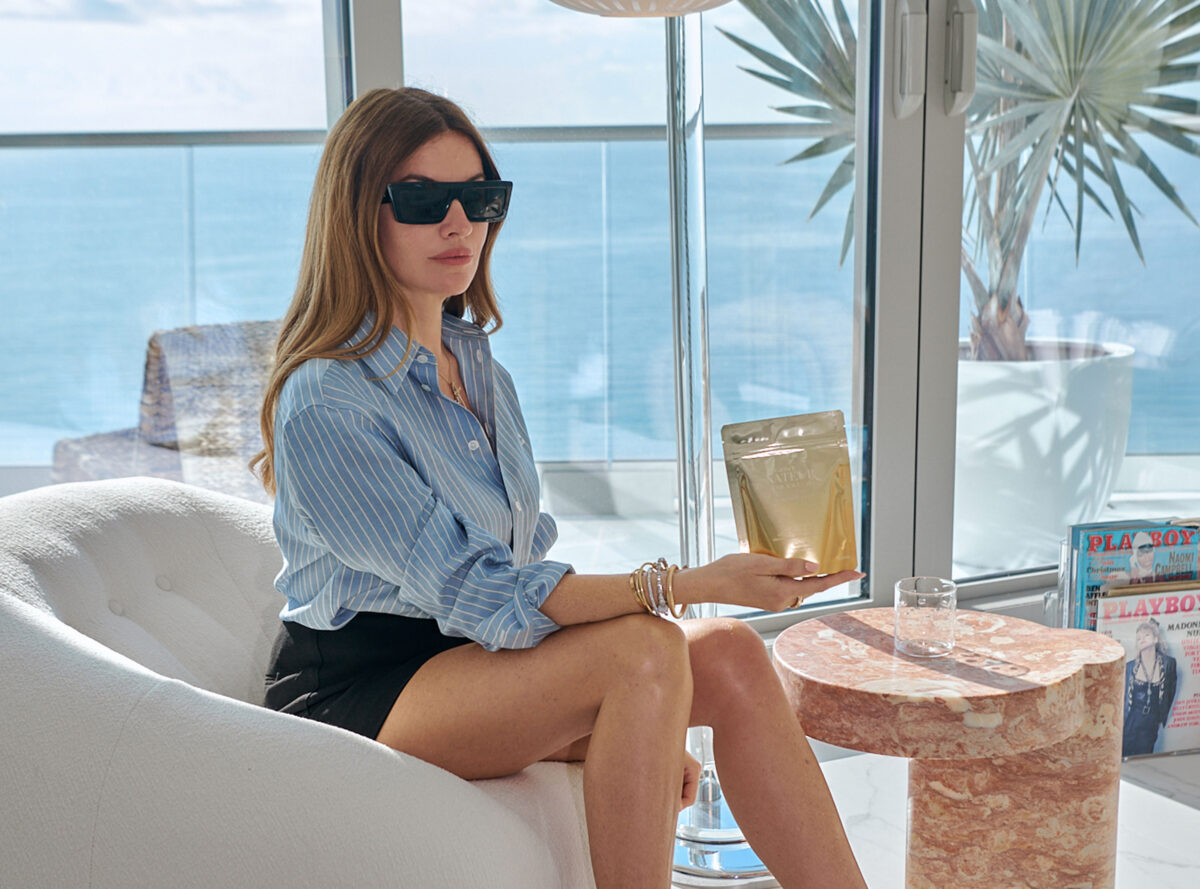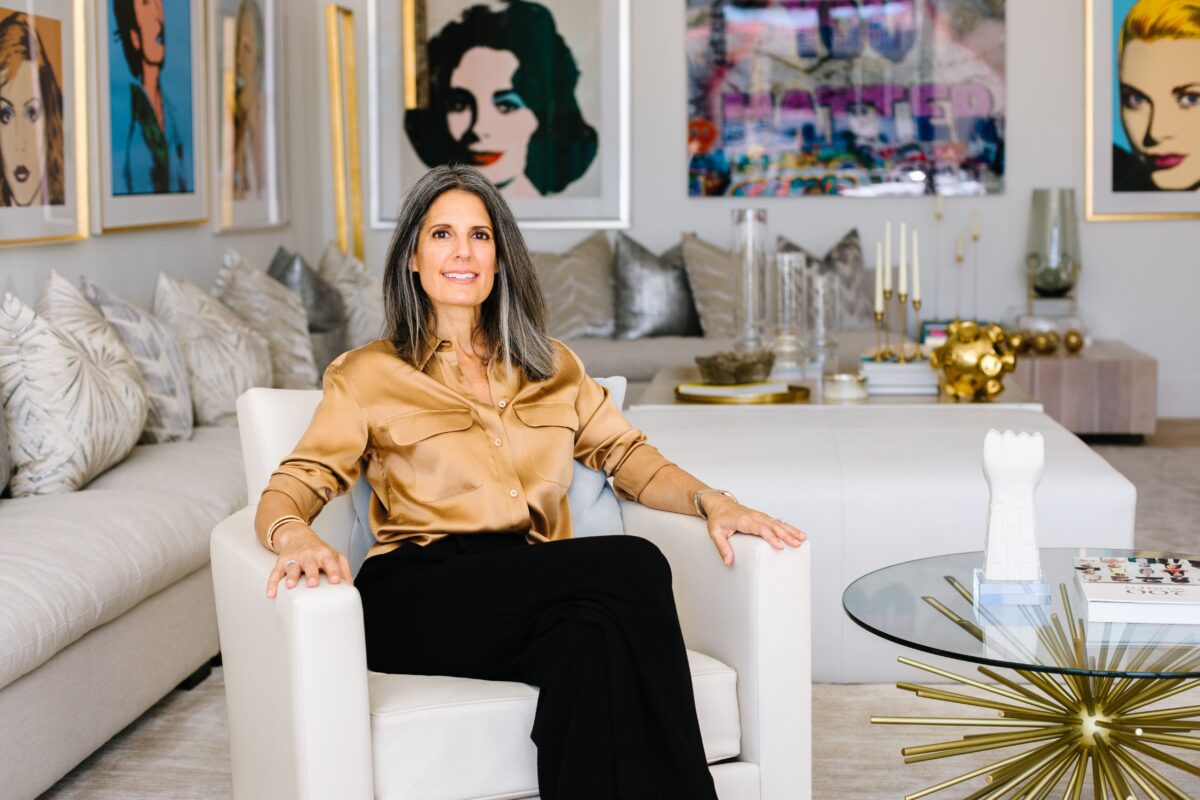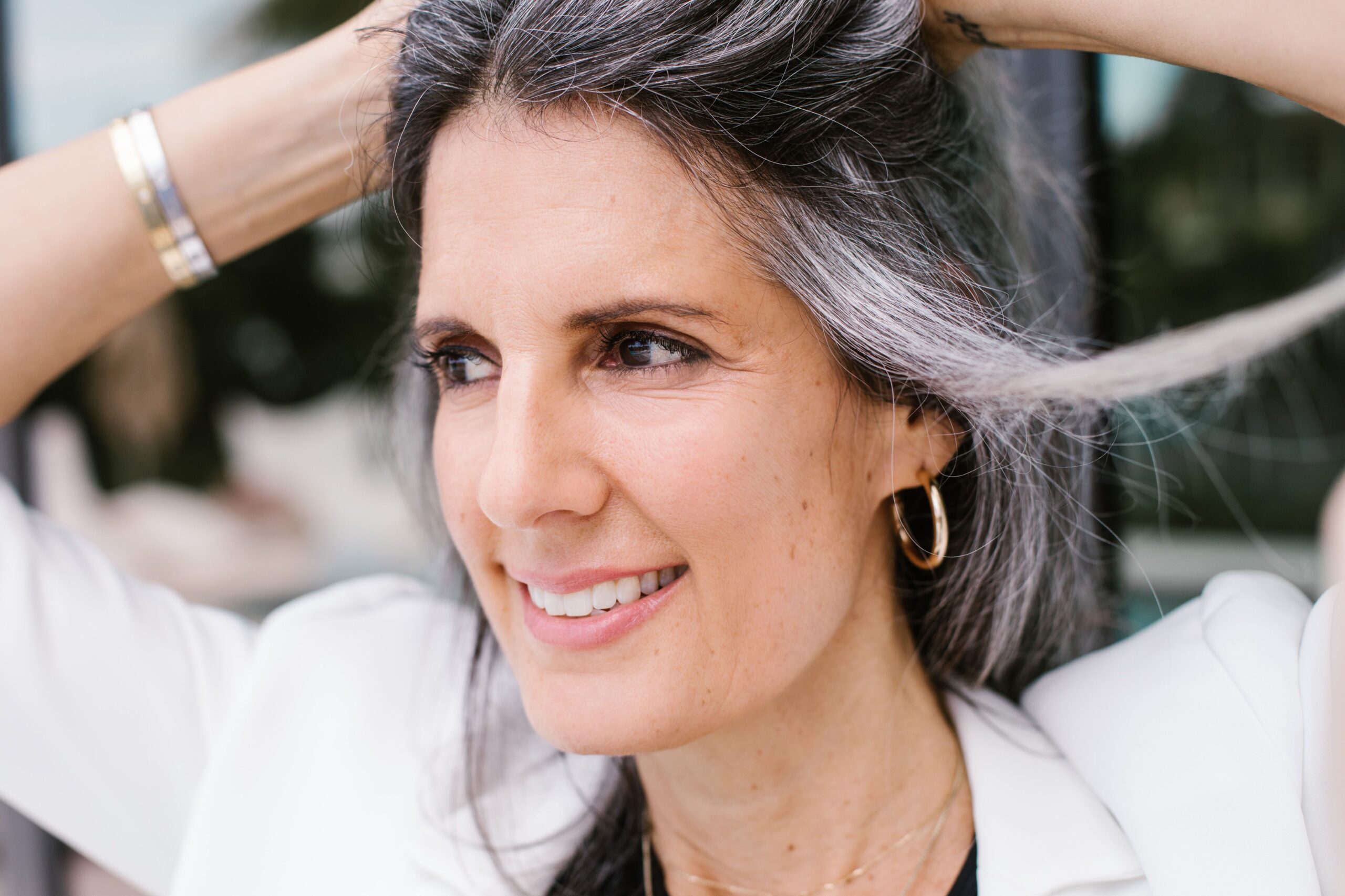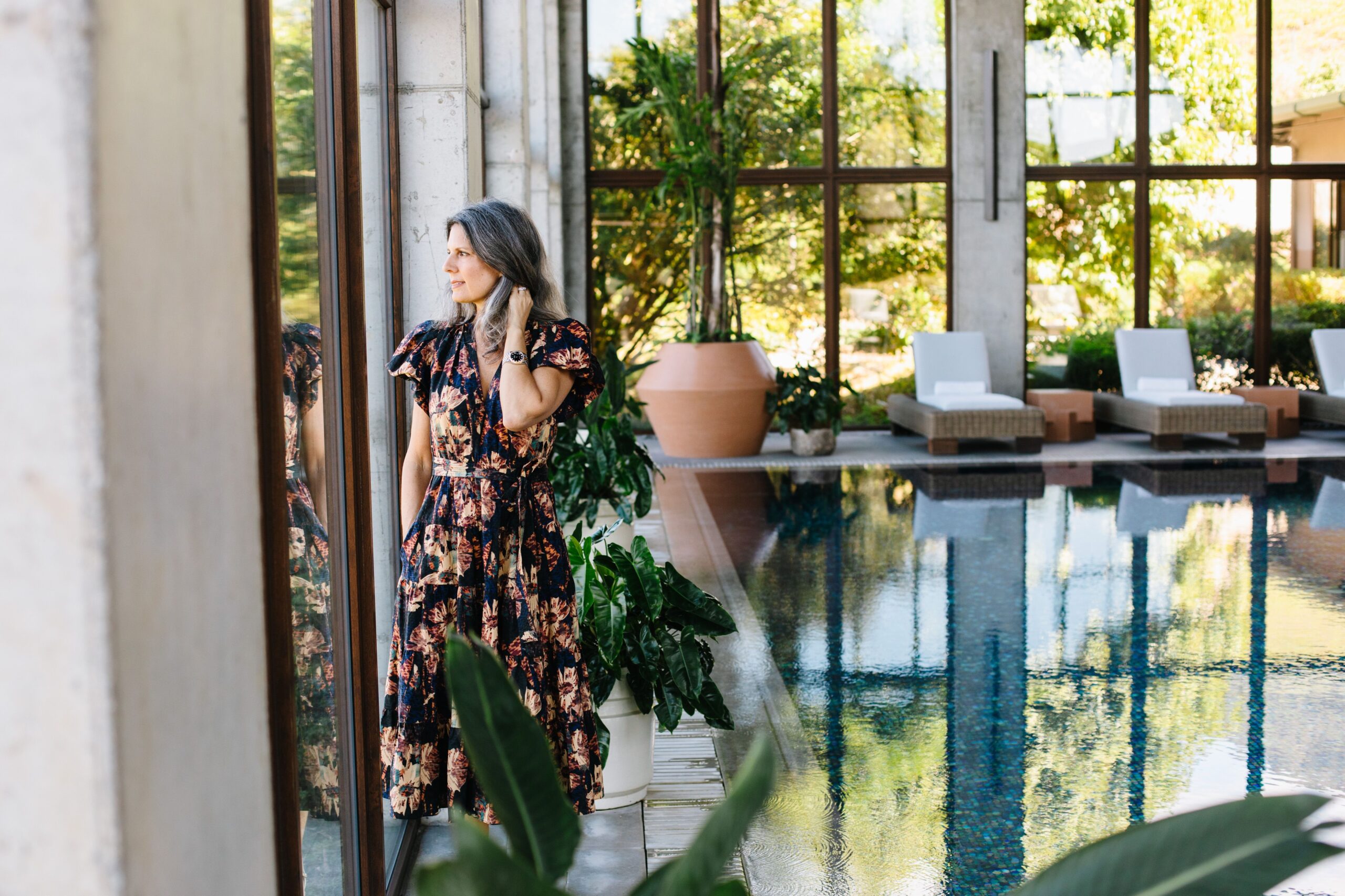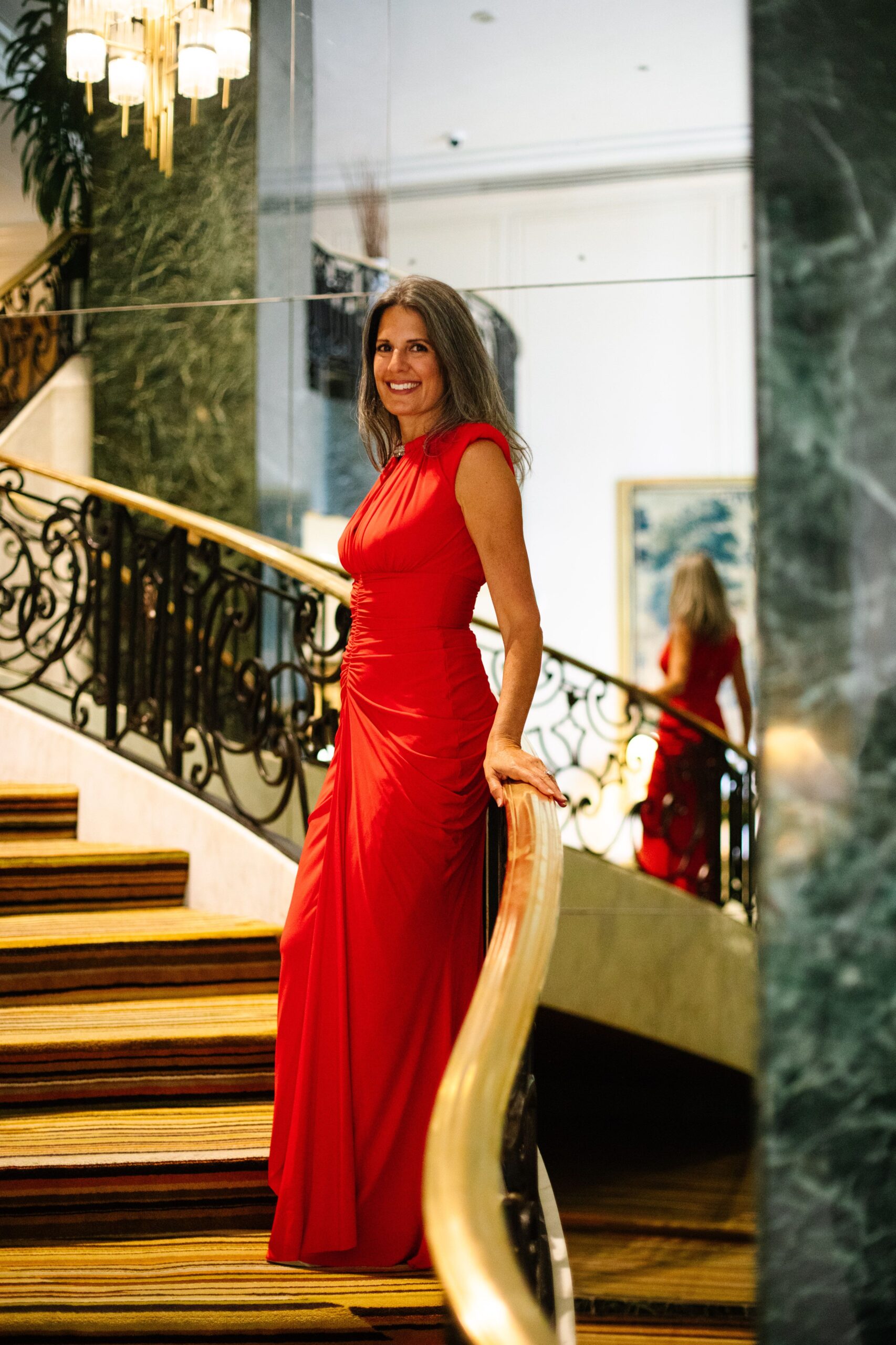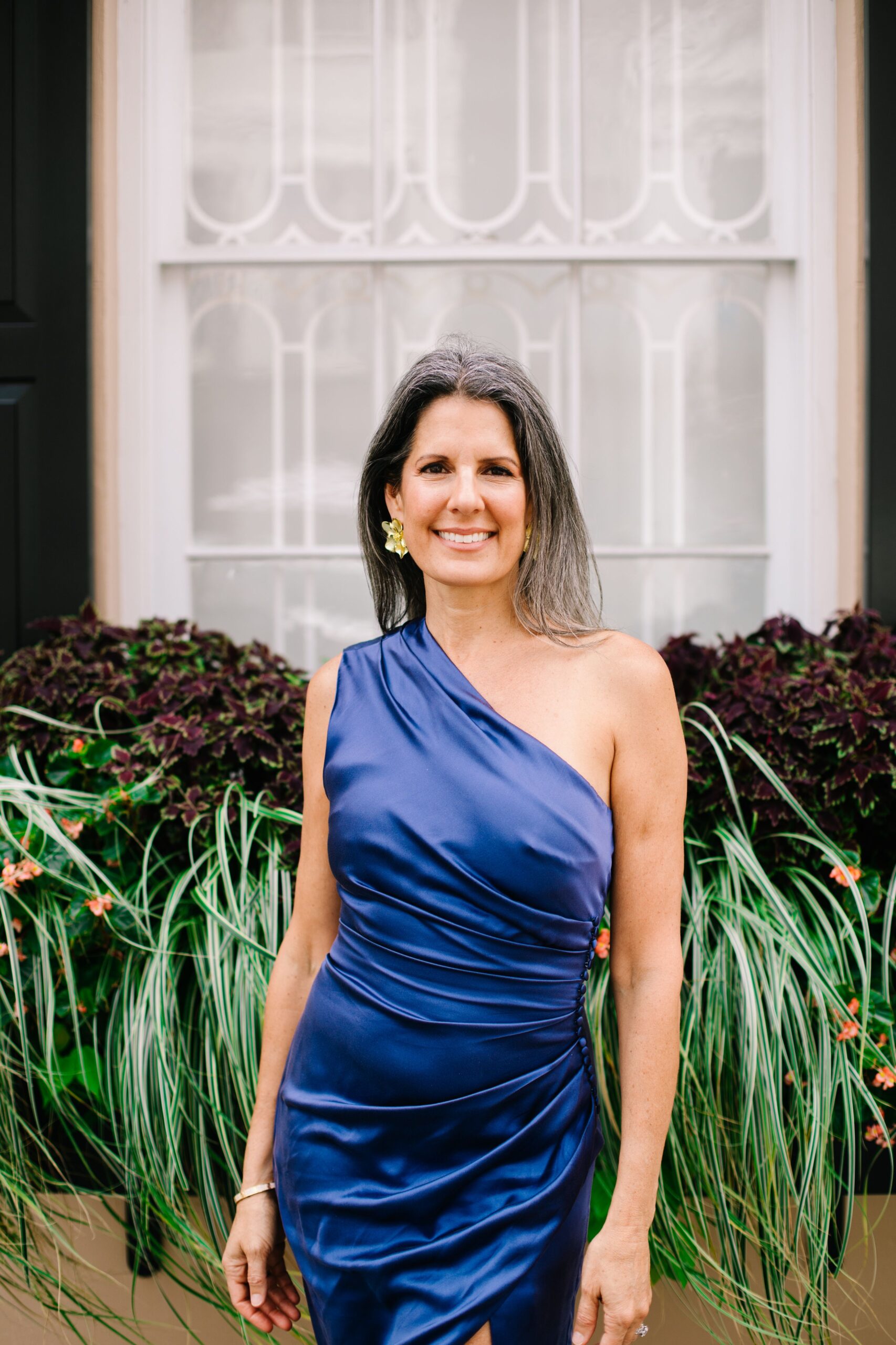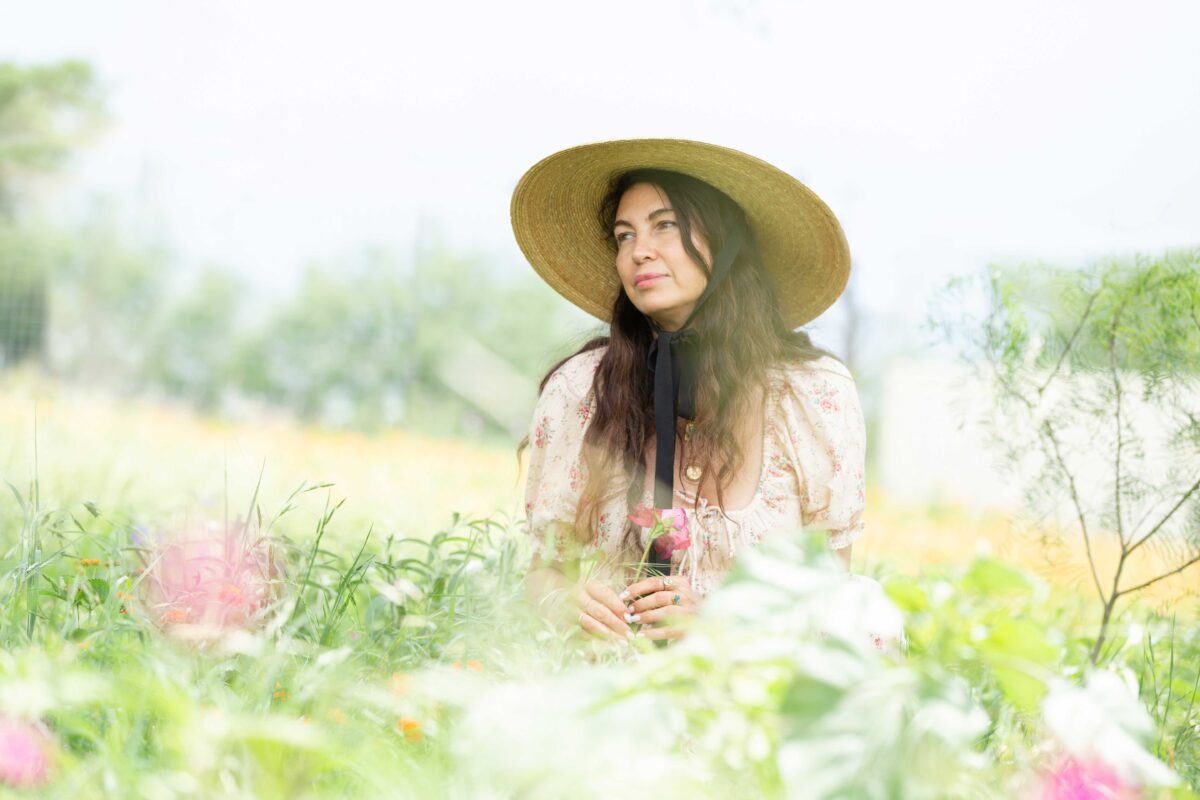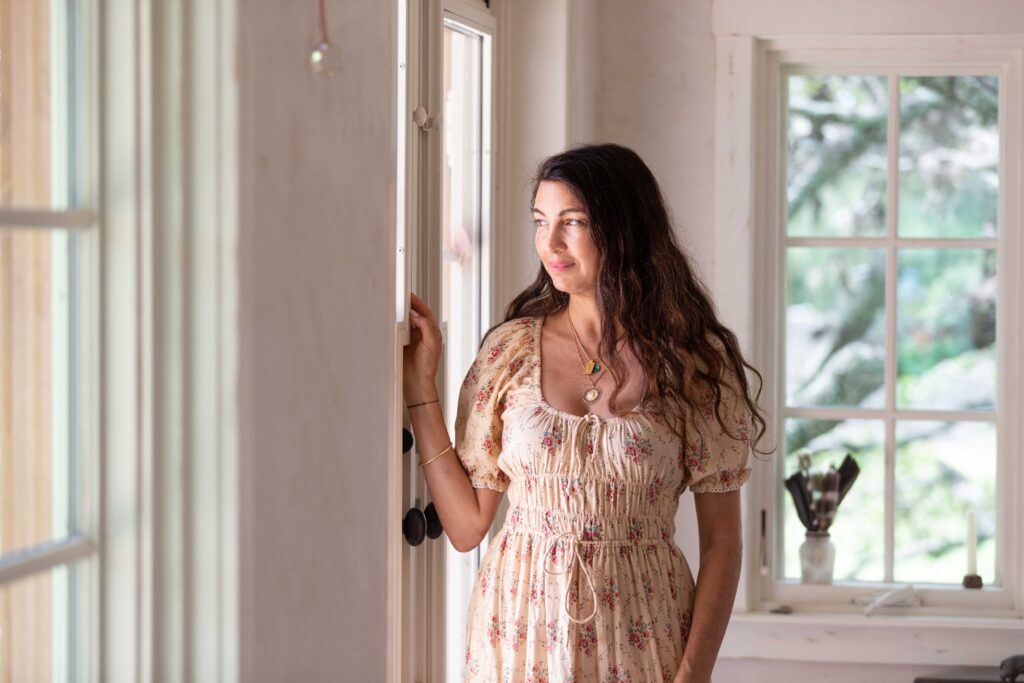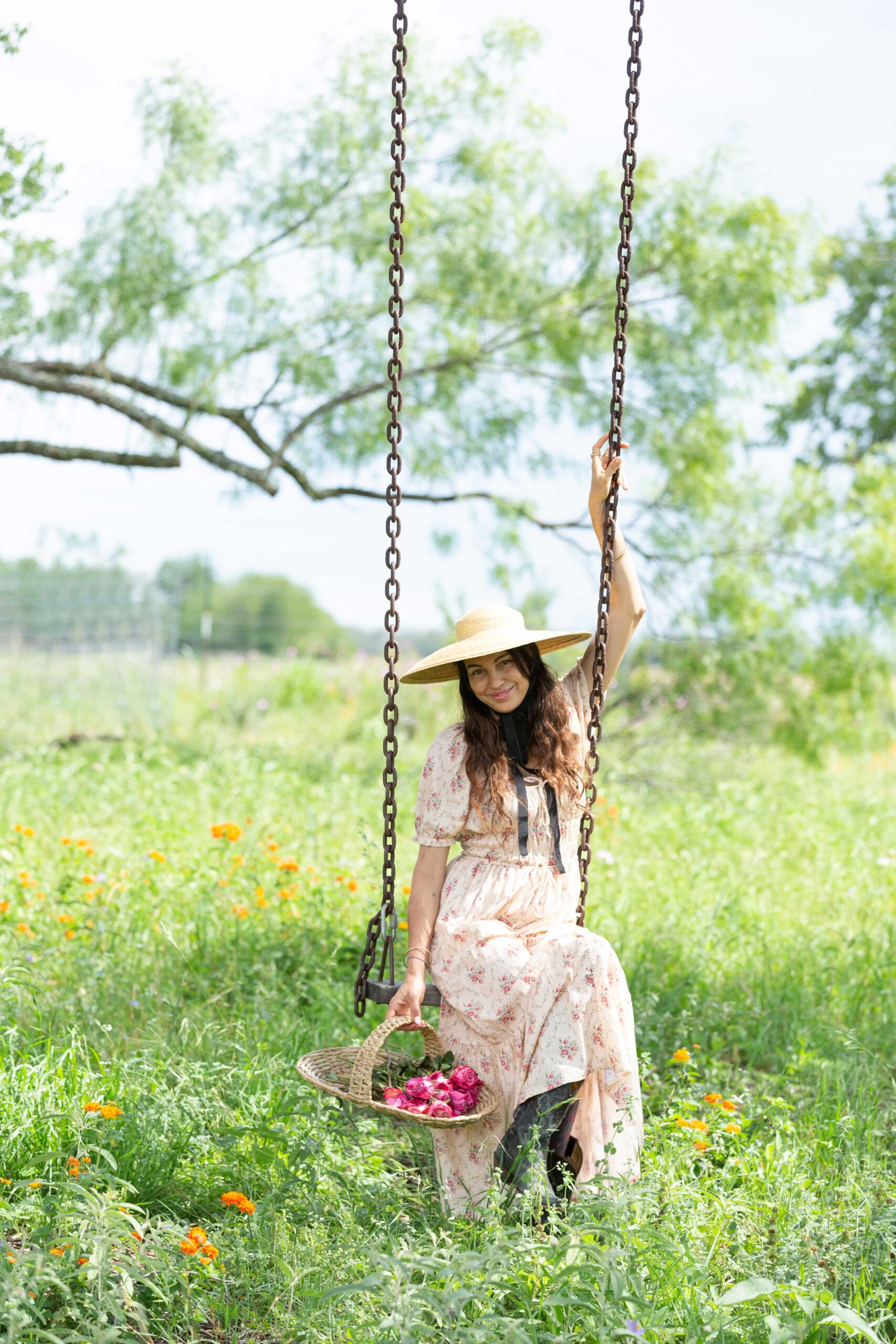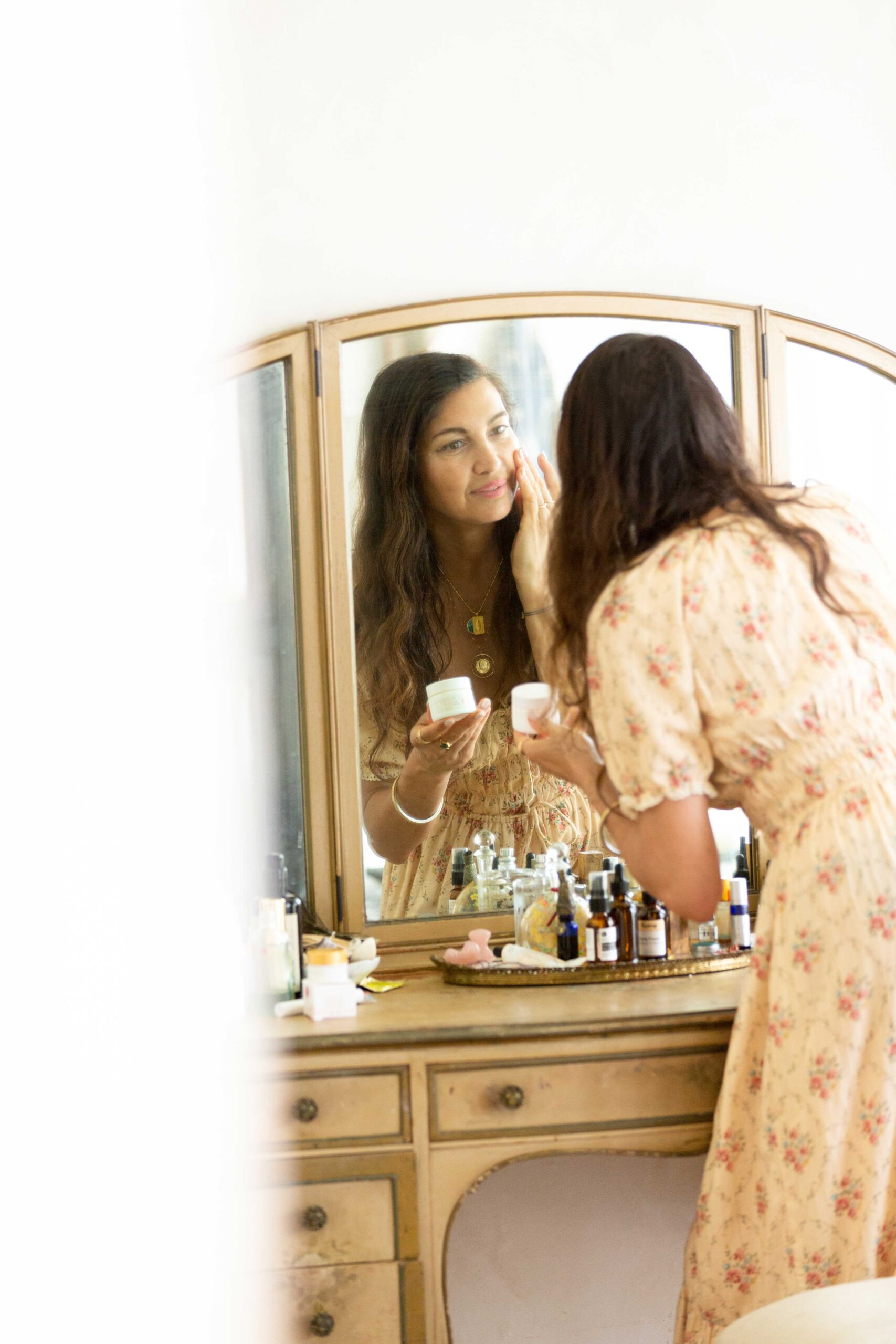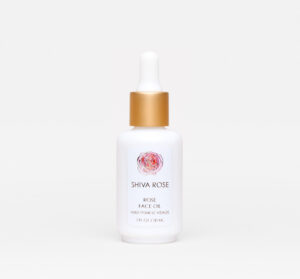A diagnosis of endometriosis and adenomyosis at age 23 was the catalyst that prompted Jena Covello to research holistic approaches to heal these estrogen-dominant autoimmune conditions.
Wary of hormone-disrupting chemicals in everyday products, she began experimenting with natural solutions, starting with a luxurious deodorant she crafted in her West Hollywood apartment. “I wanted to create something that was equally beautiful as it was healthy and effective,” she said.
Eventually, that led her to found Agent Nateur, a luxury wellness brand offering skincare, supplements, and beauty essentials with nourishing ingredients that are free from GMOs, soy, parabens, sulfates, aluminum, and petroleum. Over the years, Covello has continued to share her tips and insights on her blog and social media.
Here, she shares her morning routine, the ingredients she loves, and the places where she finds inspiration and renewal.
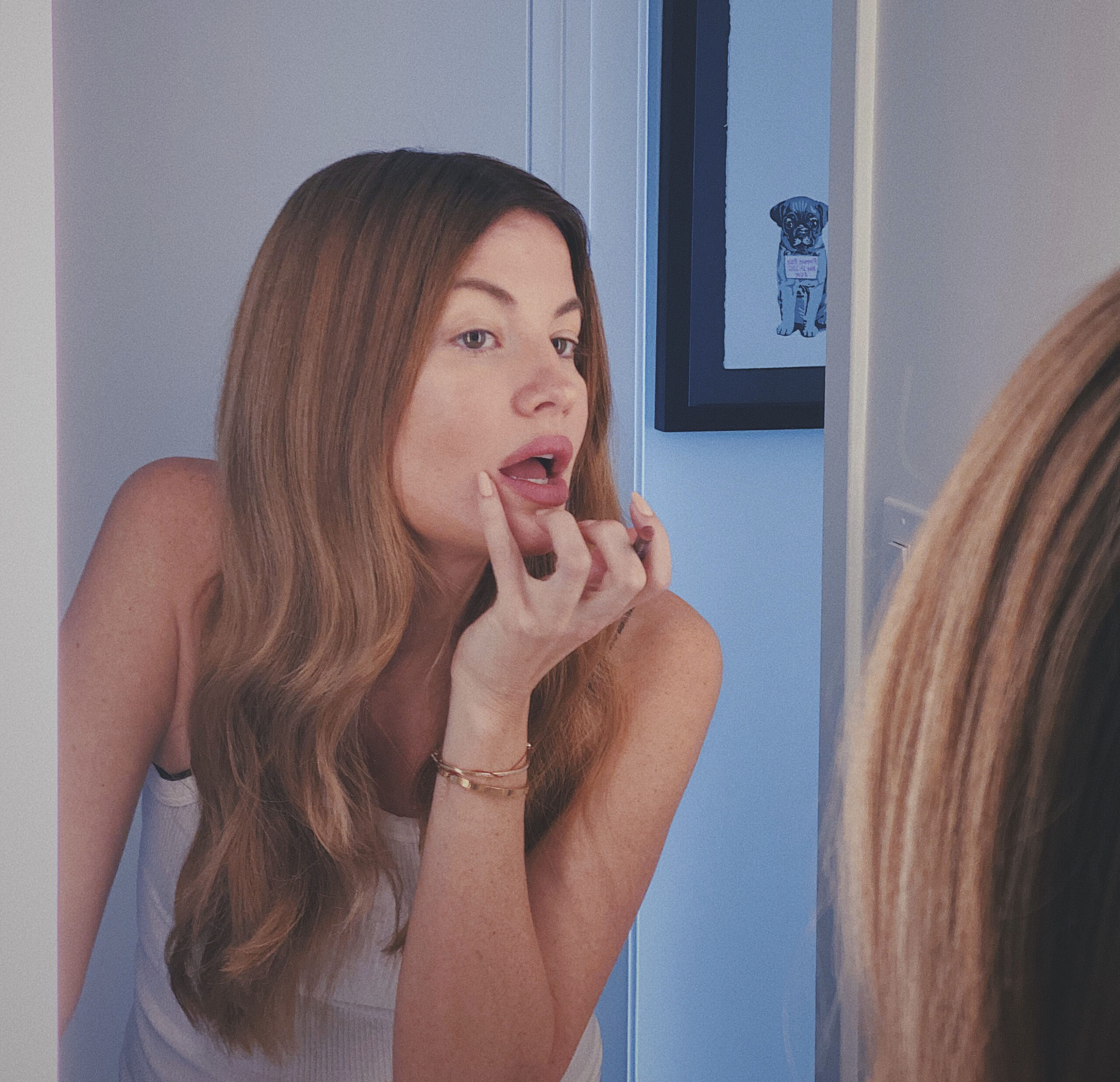
AE: What’s your morning routine like?
Jena Covello: Every morning is different, but I always maintain my non-negotiables: a workout—virtual or in-person—with my trainer Rob Parr, time for my skin care routine, and my morning holi (mane) matcha latte with almond milk, maple syrup, cinnamon, and a pinch of Himalayan sea salt.
I don’t wash my skin in the morning with anything except water. I apply Agent Nateur rose and hyaluronic essence with a dash of holi c and holi oil. Then I apply our new tinted SPF, holi (sun), non-nano zinc-based tinted protecting drops! I like matte lipstick and lipliner, but aside from that I don’t wear much makeup.
AE: What hero ingredients do you swear by?
Ms. Covello: Cucumber water is one favorite. It is bursting with flavonoids and antioxidants that promote youthful-looking skin, and is shown to alleviate swelling and soothe redness. It also smells so incredible. Another favorite in many Agent products is sodium ascorbyl phosphate. It is the best derivative of vitamin C for cosmetics due to its natural SPF of 8, its stability, and its bioavailability. It protects against environmental stressors that lead to fine lines and wrinkles. Spermidine is an incredibly powerful cell-renewing active, both topically and orally. It is a key ingredient in our new calm (beauty) supplement and in our new topical scalp growth spray!
AE: What are the most important things you’ve learned on your health and wellness journey?
Ms. Covello: The brand’s existence is truly because of this journey! I have a history with endometriosis and adenomyosis and many years ago began taking a holistic approach to my health to heal both estrogen dominant autoimmune conditions. Many doctors began telling me to avoid using aluminum antiperspirant because it mimics estrogen. I couldn’t find a natural deodorant that worked so I began making my own. I wanted to create something that was equally beautiful as it was healthy and effective. At the time nothing existed. I poured and packaged the deodorants myself in my West Hollywood apartment! Over the years, I have gotten access to the most incredible holistic doctors and healers from around the world. I created our blog to share all this knowledge that has changed my life. We have endless expert interviews, deep-dives on specific topics, and holistic tips for everything from hair shedding to manifesting techniques.
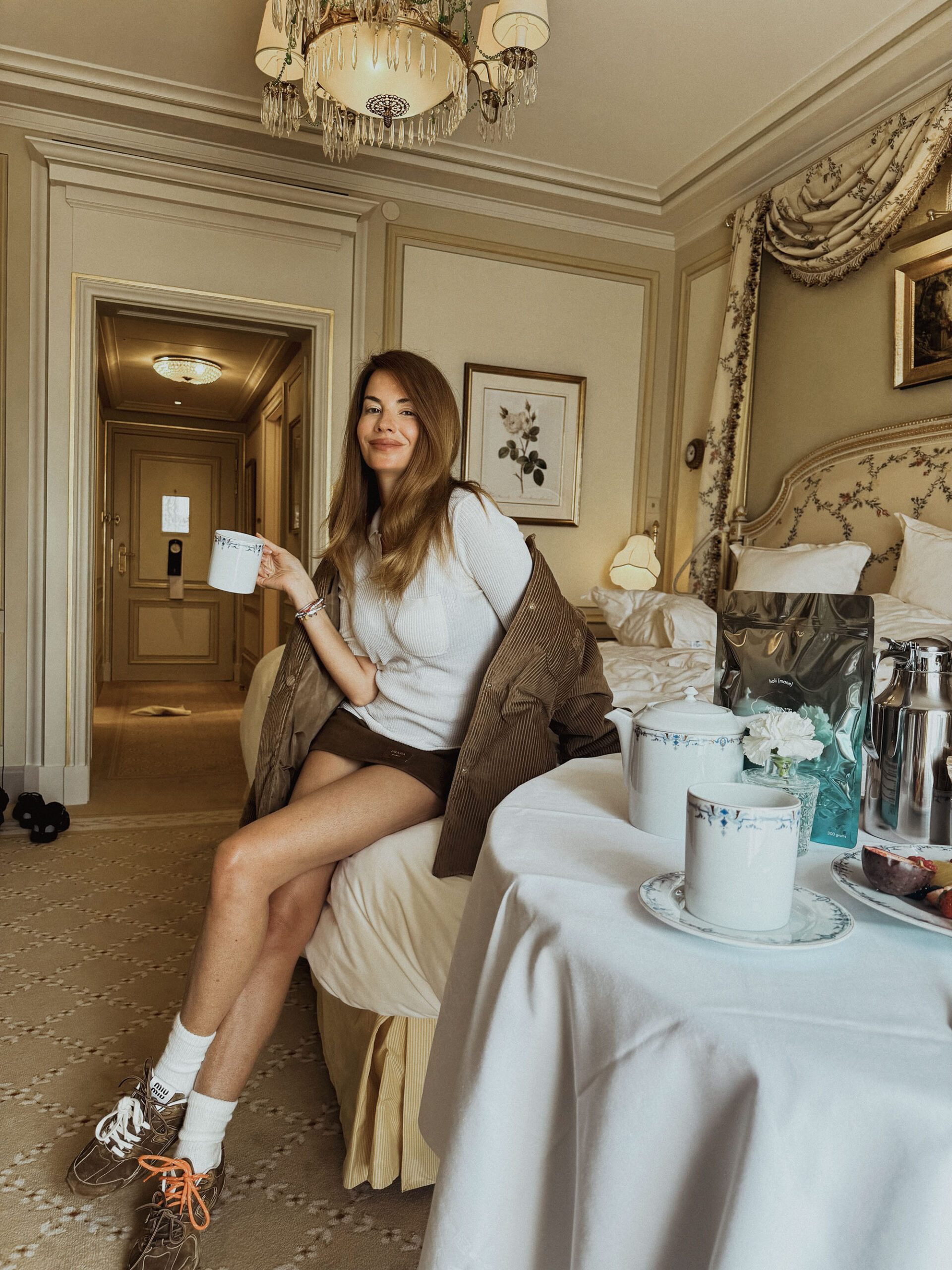
AE: What makes Agent Nateur unique?
Ms. Covello: We are truly category agnostic. Our customer trusts us to create the best, most effective and beautiful skincare, supplements, makeup, hair care and body care. The common denominator for every product is a relentless commitment to quality and efficacy. I formulate in the south of France and Los Angeles, focusing on ingredients that are healing, nourishing, as well as free from GMO’s, soy, parabens, sulfates, aluminum and petroleum. Our products do not disturb hormones and are safe when pregnant and breastfeeding. This standard is what our customer deeply trusts in and is incredibly important for me to uphold!
AE: What’s your favorite beauty product, currently?
Ms. Covello: It is so hard to choose just one! Holi (water), our high-molecular weight, pearl and rose hyaluronic essence. It is such a light but deeply hydrating essence, and applying it is a lovely daily ritual, it smells incredible. Mixed with holi (c), our dry vitamin c and calcium powder, it instantly brightens your complexion while working hard on discoloration, texture, and firmness long-term. Lately, I am especially obsessed with our newest supplement launch calm (beauty) a relaxing, longevity and beauty supplement with taurine and spermidine–I love to mix it into a nighttime mocktail.
Pro-tip: Holi (glow) gives the most incredible brightening effect under the eyes, no makeup necessary! I also love to tap it on my cheekbones as a natural highlight. I use holi (bright) as an overnight mask for transformed skin by morning! I also love to add epsom salt to my shampoo twice a month to really clean and clarify the hair.
AE: Where do you find inspiration?
Ms. Covello: I am inspired by my own healing journey, but also the people around me! My mom is such a skincare aficionado with incredibly high standards, and she has inspired so many products, including holi (mane) our best-selling marine collagen and pearl powder supplement.
AE: Where’s your happy place?
Ms. Covello: LA and Miami are special to me for different reasons. I’m surrounded by constant creativity in LA. I’m so lucky to have amazing friends, a support system and team that inspires me. Nowhere in the world compares. What I love most is how original and forward everyone is creative-wise. Within five seconds I can recommend the best hair stylist, makeup artist, functional medical doctor, nutritionist, facial, nail salon, photographer, influencer, set designer, creator, calligraphy writer, painter, etc.
Miami is the place I escape to when I’m burnt out and need alone time, or the perfect place between LA and Europe. I mostly just hang out with my boyfriend and dogs, and feel a great sense of relief listening to the ocean from my bedroom. For sure that sound partially healed me. It’s clean, safe, and nothing is as magnificent as winter in Miami.
AE: What new project are you excited about?
Ms. Covello: Our upcoming magnesium supplement. It is a blend of six premium forms of magnesium for unparalleled bioavailability, efficacy, and results. Each form is intentionally selected to target mind, body, and cellular health, delivering the ultimate solution for energy, relaxation, cognitive clarity, and restful sleep.

